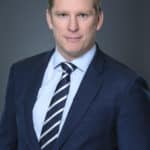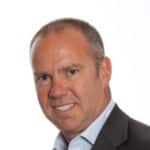
Northern Trust has signed 23 fund managers for its outsourced trading capability and expects strong growth for the offering next year as asset managers face pressure on margins.
The US asset manager and custodian bank has relaunched Integrated Trading Solutions to provide trade execution, middle office, matching, settlement and regulatory reporting for the buy side.
Costs have been increasing for fund managers due to increased regulation and there is also pressure on fees as flows switch from active to passive products. For example, MiFID II came into force in the European Union this year and introduced new trade reporting mandates, stronger best execution requirements and unbundled research payments from trading commissions.
Guy Gibson, head of institutional brokerage, for Europe, Middle East, Africa (Emea) and Asia-Pacific at Northern Trust Capital Markets, told Markets Media that these factors were combining to drive down profitability on the buy side.

Guy Gibson, Northern Trust
Gibson said: “In January last year we decided that we could differentiate ourself in a MiFID II environment through our role as a custodian bank and helping clients outsource their trading and middle office. As a custodian bank we do not have the conflicts of investment banks.”
One way of reducing costs for buy side clients is through Integrated Trading Solutions using Swift technology in middle office trade processing. A client can trade at 11 am and settlement messages can be matched at the custodian within an hour. As a result, the risk of failed trades falls to virtually zero.
Integrated Trading Solutions can also access all liquidity across 33 venues and 88 global markets, without clients having to set up their own connections. The team has six traders on the European equities desk for both program and cash trading and two traders for fixed income. There are also eight sales traders.
“We do not interact with high-frequency traders,” Gibson added. “We rotate our executing brokers on performance, each month the worst performing broker is stood down.”
Before onboarding a client, Northern Trust can analyse how much cost can be decreased based on how that individual fund trades. The Integrated Trading Solutions team then meets clients every month to review transaction costs for each trade and discuss how execution can be improved.
“We use artificial intelligence to review execution quality and find that subtle changes can make significant improvements,” said Gibson. “For example, in reviewing the data and re-running the trades under different footprint scenarios, improved outcomes can be highlighted for future trade instructions.”
Growth
He continued that Integrated Trading Solutions was relaunched in September this year. As a result Northern Trust Capital Markets had a 135% year-on-year growth in trading volumes into the third quarter of this year.
“In the first quarter of this year we traded $50bn in equities, which is a 100% increase on the same quarter last year,” he added.
Integrated Trading Solutions currently outsources for equities and bonds globally but Gibson said the firm plans to expand the service to derivatives in Europe, Middle East and Africa in the first quarter of next year.
He added there has been an increase in clients since September as market volatility has increased.
“We expect 2019 to be a strong growth year globally,” said Gibson. “We also expect new competition to enter the space as they see our success. I see this is very helpful for the development of this space within the asset management community.”
Wealth managers and asset mangers will increasingly seek to automate or outsource everything in the middle and back office in order to reduce costs, according to a report from PwC last year. The study, Asset & Wealth Management Revolution: Embracing Exponential Change, said large regional and global wealth managers and global asset managers will either automate their in-house operations or outsource to a third-party provider.
“Smaller firms will outsource to the big asset servicing firms or even to global utilities that could emerge for functions such as know your client, transfer agency, trade processing and risk and tax reporting,” added PwC. “Automating the middle and back offices will also improve data analytics, providing a lot more information about what’s going on in the business. Product, deal and client profitability will become known, as well as manageable key metrics.”
Gibson said: “There will a lot more alignment in capital markets over the next two to three years. Clients are also increasingly looking to outsource foreign exchange trading.”
MiFID II unbundling
Gibson joined Northern Trust in in 2016 when the firm acquired Aviate Global, a UK-based institutional equity brokerage. The business was integrated into Northern Trust’s existing brokerage.
Aviate provides research, a business which is being transformed by the unbundling requirements of MiFID II. The EU regulation requires fund managers to either pay for research themselves or set up a research payment account, where the budget has been agreed with the client. Most asset managers have opted to absorb research costs, which has led to a drop in research budgets.
To help adapt to MiFID II, Northern Trust hired Glenn Poulter for its brokerage business in May. Poulter was previously head of European cash equities at Citi and chief executive for equities at Icap.

Glenn Poulter, Northern Trust
Gibson said: “Glenn Poulter estimated, in 2015, that research revenues would drop 70% under MiFID II hard landing.”
He continued that the first half of this year has been extremely difficult for research providers but there is light at the end of the tunnel. “Winners are emerging and fund managers are beginning to pay good money for the right analyst,” said Gibson.
Neil Scarth, principal at Frost Consulting, has been building a research spending database/benchmarking product – FrostDB. He found that managers using client money to pay for research spend more far more, as much as 100 times more, as fund managers who pay for research themselves. However, he argues that cutting spending on research may be a false economy if returns then fall.
Scarth told Markets Media: “Asset owners may pay between three and five basis points, for instance, but the difference in return between the first and fourth quartile of funds can be thousands of basis points over time, depending upon the strategy.”
He added that the discussion between investors and research providers is evolving as the performance implications of cutting research budgets may become clearer over time.
“Asset owners and fund managers both want the fund to do well in generating returns,” added Scarth. “So thoughtful asset owners may prefer to agree a research budget in order to give the managers the tools they need to run the strategy, particularly given the large spread between research costs and returns.”

Neil Scarth, Frost Consulting
In a paper with Stanford University in June, Scarth argued that more asset managers should set up MiFID II research accounts with an agreed budget. The paper said: “Emerging lessons from MiFID II suggest that the use of disclosure mechanisms, such as research budgets, could more adequately foster transparent alignment than can be achieved by strictly forcing asset managers to internalize more of their costs.”
The study described how such budgets may be used to support deeper relational contracts – a shared process by which institutional asset owners and their external asset managers can achieve more transparent alignment and both achieve better returns.
“The blueprint we describe could easily be transported to other areas of interaction between investors and managers, such as managers’ spending on technology or data services,” said the paper. “Still, regardless of where this approach to transparent alignment is applied, we see bundling, and other forms of entrenched opacity (e.g., fee schedules for private-equity managers) as its enemy.”





